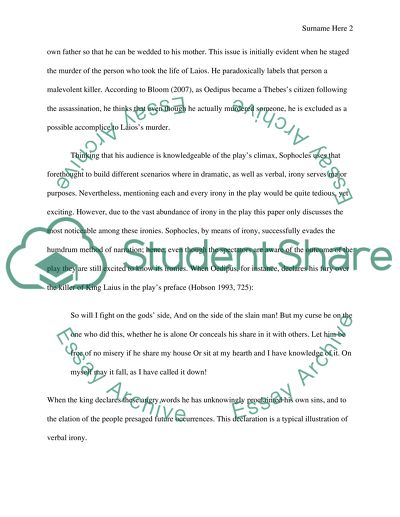Cite this document
(“Dramatic Irony in Sophocle's Oedipus Rex Essay Example | Topics and Well Written Essays - 1250 words”, n.d.)
Retrieved from https://studentshare.org/english/1429886-drama-research
Retrieved from https://studentshare.org/english/1429886-drama-research
(Dramatic Irony in Sophocle'S Oedipus Rex Essay Example | Topics and Well Written Essays - 1250 Words)
https://studentshare.org/english/1429886-drama-research.
https://studentshare.org/english/1429886-drama-research.
“Dramatic Irony in Sophocle'S Oedipus Rex Essay Example | Topics and Well Written Essays - 1250 Words”, n.d. https://studentshare.org/english/1429886-drama-research.


